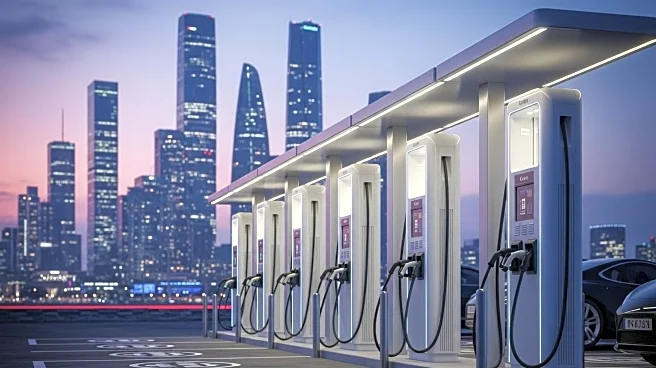What's Happening?
A Chevy dealership successfully converted a customer, Ana R, from a Jeep owner to a Chevy Equinox EV buyer through an effective test drive strategy. Ana R visited the dealership for an oil change and ended up purchasing an electric vehicle (EV) after experiencing a test drive. This approach highlights the emotional impact of driving an EV, which can be a decisive factor in the sales process. The dealership's sales representative leveraged the emotional appeal of the EV's performance, particularly its torque, to engage the customer. This method aligns with the sales principle that emotions drive purchasing decisions, with facts serving to justify the choice later. The dealership's initiative comes at a critical time as federal EV incentives are set to expire on September 30, adding urgency to the sales process.
Why It's Important?
The dealership's strategy underscores the growing importance of emotional engagement in the automotive sales industry, particularly for EVs. As the deadline for federal EV incentives approaches, dealerships are under pressure to maximize sales. The emotional appeal of EVs, such as their instant torque and unique driving experience, can be a powerful tool in overcoming customer hesitancy. This case illustrates how dealerships can effectively use test drives to boost EV sales, potentially influencing industry practices. The success of this approach could lead to increased adoption of EVs, contributing to broader environmental goals and the transition to sustainable transportation. Additionally, it highlights the need for sales teams to adapt to the unique selling points of EVs, which differ from traditional vehicles.
What's Next?
With the impending expiration of federal EV incentives, dealerships may intensify efforts to promote EV sales through similar strategies. This could involve more test drive events and customer engagement initiatives to capitalize on the emotional appeal of EVs. As the industry adapts, sales representatives may require additional training to effectively communicate the benefits of EVs and address customer concerns. The outcome of these efforts could influence future policy decisions regarding EV incentives and support for sustainable transportation. Additionally, the success of such strategies may encourage other dealerships to adopt similar approaches, potentially leading to increased competition and innovation in the EV market.
Beyond the Headlines
The shift towards emphasizing emotional engagement in EV sales could have broader implications for the automotive industry. It may lead to a reevaluation of traditional sales techniques and a greater focus on customer experience. This approach also highlights the potential for EVs to reshape consumer perceptions of vehicle ownership, emphasizing performance and sustainability. As more consumers experience the benefits of EVs firsthand, there could be a cultural shift towards greater acceptance and demand for electric vehicles. This trend may also prompt manufacturers to innovate further, enhancing the emotional and practical appeal of their EV offerings.











